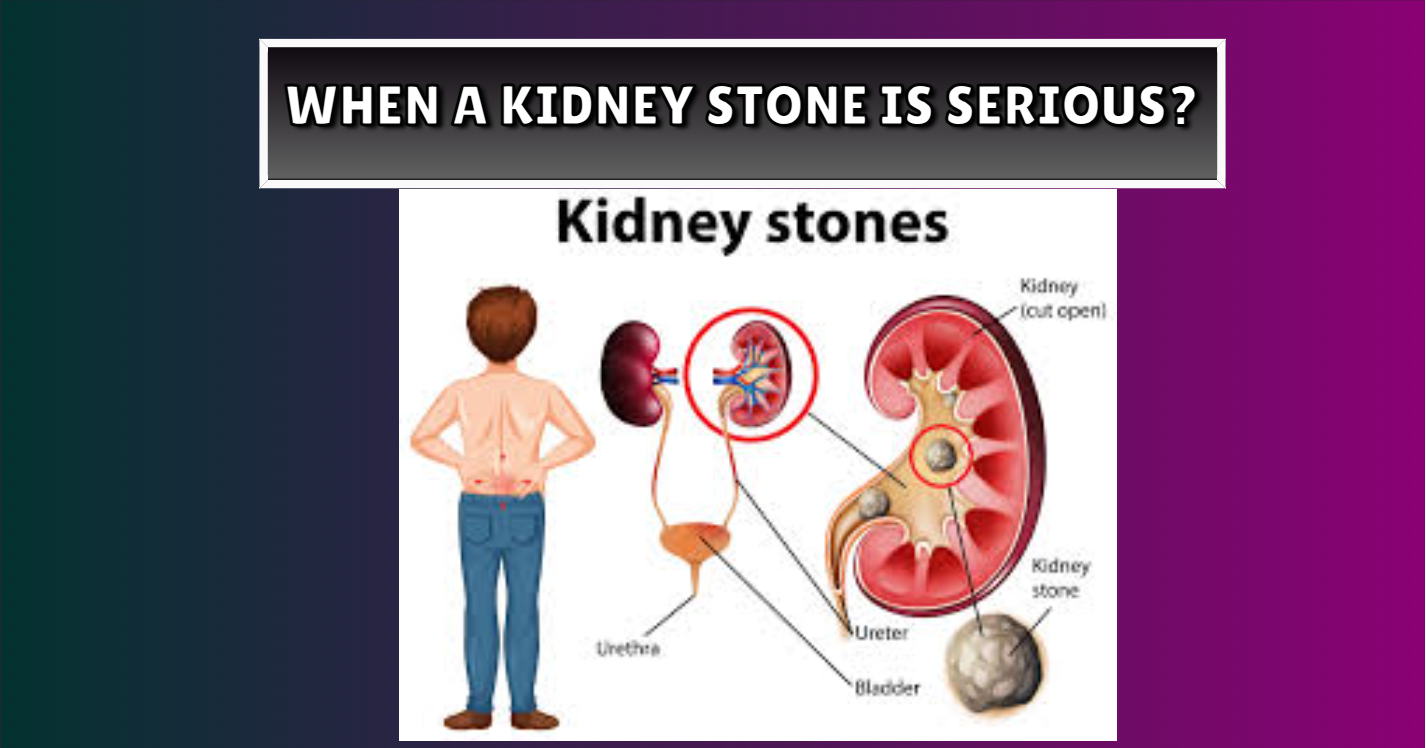🚨 “How do you know when a kidney stone is serious?” 🚨 If you’ve ever felt a sudden, stabbing pain in your side or back, you might be dealing with a kidney stone. While many stones pass naturally, some situations turn dangerous FAST. Learn the 5 critical red flags that demand immediate medical attention—before it’s too late!
1. Severe, Unrelenting Pain
Kidney stone pain often starts as a dull ache but escalates to excruciating, wave-like cramps in your flank, lower abdomen, or groin. If the pain doesn’t improve with movement or lasts longer than 24 hours, it could mean the stone is stuck, blocking urine flow. Don’t “tough it out”—this can damage your kidneys!
2. Fever or Chills
A fever over 100.4°F (38°C) with chills or sweating signals a possible infection. Kidney infections paired with stones are medical emergencies that can lead to sepsis if untreated.
3. Blood in Your Urine
While pink or reddish urine is common with stones, persistent or heavy bleeding (especially with clots) means the stone is causing serious irritation or blockage.
4. Nausea and Vomiting
Intense pain often triggers nausea, but constant vomiting prevents hydration and medication absorption. Dehydration worsens kidney strain!
5. Inability to Urinate
If you feel a strong urge to pee but can’t, the stone may be blocking your urethra. This risks kidney swelling (hydronephrosis) and permanent damage.
When to Seek Help: A Quick Guide
Use this table to spot urgent vs. manageable symptoms:
| Normal Symptoms | Serious Symptoms |
|---|---|
| Mild discomfort | Severe pain unresponsive to meds |
| Slight nausea | Persistent vomiting or fever |
| Occasional blood traces | Dark red urine or clots |
| Frequent urination | Inability to urinate |
Kidney Stone Size & Passing Chances
[Kidney Stone Size vs. Likelihood of Passing Naturally]
(Visual idea: A stones with size of <4mm have 80% pass rate, 4-6mm 50%, and >6mm <20%.)
Don’t Wait—Act Now!
If you’re experiencing even one serious symptom, call your doctor or head to the ER. Early treatment prevents complications like kidney damage or infections.
👉 CTA: “Bookmark this guide, share it with loved ones, and never ignore your body’s warnings! Your kidneys will thank you.”
FAQs: Quick Answers
- How long does it take to pass a kidney stone?
Most small stones (under 4mm) pass in 1-2 weeks. Larger stones may need medical help. - Can kidney stones cause permanent damage?
Yes, if left untreated. Blockages can lead to kidney scarring or failure. - Do home remedies work?
Hydration and pain relievers help small stones, but NEVER ignore severe symptoms. - Who’s at highest risk?
People with dehydration, high-sodium diets, or family history. - Are kidney stones and UTIs related?
Stones can increase UTI risk, but UTIs alone don’t cause stones.
Conclusion: How Do You Know When a Kidney Stone Is Serious?
Listen to your body! Severe pain, fever, blood, vomiting, or blocked urination mean STOP and seek help. Share this guide to empower others—and remember, quick action saves lives! 💪

